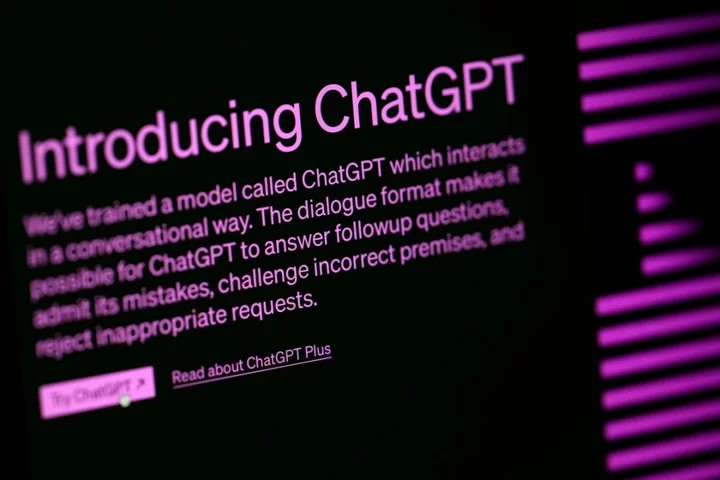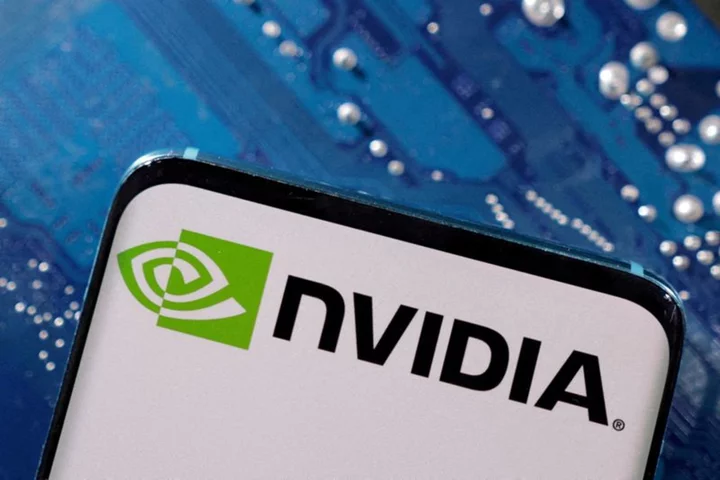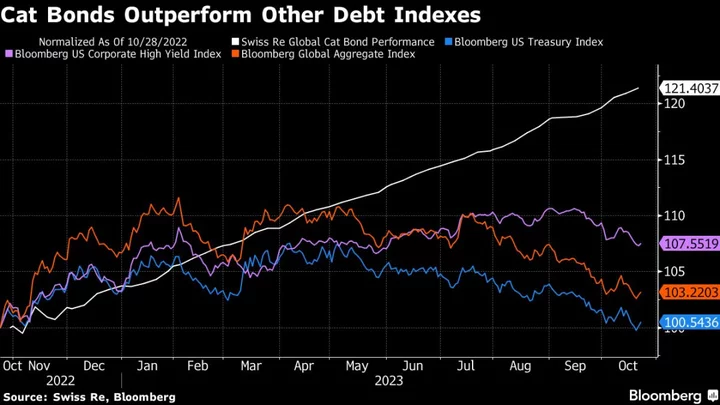
How One Grieving Father Got Lawn Darts Banned
Lawn darts were banned in 1988, but not before seriously injuring many children and killing at least one.
2023-10-25 00:27

Apple to hold special event on Oct. 30 dubbed 'Scary Fast'
IPhone maker Apple said on Tuesday it will hold a special event named "Scary Fast" on Oct. 30.
2023-10-25 00:25

Dozens of states sue Instagram-parent Meta over 'addictive' features and youth mental health harms
Dozens of states sued Instagram-parent Meta on Tuesday, accusing the social media giant of harming young users' mental health through allegedly addictive features such as infinite news feeds and frequent notifications that demand users' constant attention.
2023-10-24 23:55

ChatGPT and other chatbots ‘can be tricked into making code for cyber attacks’
Artificial intelligence (AI) tools such as ChatGPT can be tricked into producing malicious code which could be used to launch cyber attacks, according to research. A study by researchers from the University of Sheffield’s Department of Computer Science found that it was possible to manipulate chatbots into creating code capable of breaching other systems. Generative AI tools such as ChatGPT can create content based on user commands or prompts and are expected to have a substantial impact on daily life as they become more widely used in industry, education and healthcare. But the researchers have warned that vulnerabilities exist, and said their research found they were able to trick the chatbots into helping steal sensitive personal information, tamper with or destroy databases, or bring down services using denial-of-service attacks. In reality many companies are simply not aware of these types of threats and due to the complexity of chatbots, even within the community, there are things that are not fully understood Xutan Peng, University of Sheffield PhD student In all, the university study found vulnerabilities in six commercial AI tools – of which ChatGPT was the most well-known. On Chinese platform Baidu-Unit, the scientists were able to use malicious code to obtain confidential Baidu server configurations and tampered with one server node. In response, the research has been recognised by Baidu, which addressed and fixed the reported vulnerabilities and financially rewarded the scientists, the university said. Xutan Peng, a PhD student at the University of Sheffield, who co-led the research, said: “In reality many companies are simply not aware of these types of threats and due to the complexity of chatbots, even within the community, there are things that are not fully understood. “At the moment, ChatGPT is receiving a lot of attention. It’s a standalone system, so the risks to the service itself are minimal, but what we found is that it can be tricked into producing malicious code that can do serious harm to other services.” The risk with AIs like ChatGPT is that more and more people are using them as productivity tools, rather than a conversational bot, and this is where our research shows the vulnerabilities are Xutan Peng, University of Sheffield PhD student The researchers also warned that people using AI to learn programming languages was a danger, as they could inadvertently create damaging code. “The risk with AIs like ChatGPT is that more and more people are using them as productivity tools, rather than a conversational bot, and this is where our research shows the vulnerabilities are,” Peng said. “For example, a nurse could ask ChatGPT to write an (programming language) SQL command so that they can interact with a database, such as one that stores clinical records. “As shown in our study, the SQL code produced by ChatGPT in many cases can be harmful to a database, so the nurse in this scenario may cause serious data management faults without even receiving a warning.” The UK will host an AI Safety Summit next week, with the Government inviting world leaders and industry giants to come together to discuss the opportunities and safety concerns around artificial intelligence. Read More Tinder adds Matchmaker feature to let friends recommend potential dates Google and Meta withdraw from upcoming Web Summit ‘Game-changing’ facial recognition technology catches prolific shoplifters Facial recognition firm Clearview AI overturns UK data privacy fine Sadiq Khan, Met Commissioner to ask phone companies to ‘design out’ theft Microsoft gets go-ahead to buy Call of Duty maker Activision
2023-10-24 23:23

Rare moments captures python engaging in cannibalism
A species of snake has been seen engaging in cannibalistic behaviour after the incident was captured on camera. In Far North Queensland, Australia, a coastal region in the north of Queensland, a black-headed python was witnessed eating another member of the same species. The rare scene was witnessed at the Australian Wildlife Conservancy’s (AWC) Piccaninny Plains Wildlife Sanctuary where the manager, Nick Stock, was in for quite a shock. In fact, Stock had to get closer to the snakes to realise that what he was witnessing was a scene of cannibalism, as he saw a black-headed python that had constricted another smaller one and was eating it, tail first. In a statement about the incident, Stock explained: “Fortunately for me but not-so-fortunately for the python being consumed, it took around 15 minutes from when I first witnessed the initial constriction to the python finishing its meal and returning to its burrow which was only about 10 feet away.” Stock revealed he grabbed his camera and documented the rare event. While experts have witnessed pythons eating other species of snake, capturing a species eating one of its own kind on camera is unusual. “I have previously witnessed Black-headed Pythons eating an Eastern Brown Snake and a Yellow Spotted Monitor, however, this was the first time I witnessed a Black-headed Python eating another Black-headed Python,” Stock said. The behaviour is rarely caught on camera outside of captivity, but ecologist Helena Stokes says the phenomenon is not as uncommon as people might think. She explained: “Black-headed Pythons prefer to eat reptiles over mammals and are known to eat larger reptiles including goannas, and even venomous snakes, so I’m not surprised that they would consume another python if the opportunity arose.” Sign up to our free Indy100 weekly newsletter How to join the indy100's free WhatsApp channel Have your say in our news democracy. Click the upvote icon at the top of the page to help raise this article through the indy100 rankings.
2023-10-24 22:55

Bitcoin soars to near 18-month high as ETF speculation mounts
By Tom Wilson and Tom Westbrook LONDON/SINGAPORE (Reuters) -Bitcoin rose 6% on Tuesday to to $35,198, its highest in nearly
2023-10-24 22:27

The battery test race to work out what used EVs are really worth
(This Oct. 23 story has been corrected to mention that Driverama is a unit of Aures Holdings in paragraph 15)
2023-10-24 21:55

Australia Reveals $1.3 Billion Expansion in Critical Mineral Financing
Australia will announce a A$2 billion ($1.3 billion) expansion in critical minerals financing Tuesday as part of its
2023-10-24 21:45

Nvidia says U.S. speeded up new export curbs on AI chips
Chip designer Nvidia said new U.S. export restrictions blocking the sales of its high-end artificial intelligence chips to
2023-10-24 21:21

Convincing yourself food is highly calorific could suppress your appetite
A study suggests that convincing yourself that food has a higher calorie content may suppress your appetite and help you lose weight. Alia Crum and her colleagues at Yale University gave 46 healthy volunteers the same 380-calories milkshake. However, some participants were told it was a low-calorie choice, whilst others were told it was high in calories. The 'low-calorie' bottle of the shake claimed it to have zero percent fat, zero added sugar and be only 140 calories. Whilst the 'high-calorie' bottle was labelled as 'indulgent' and accounted to 620 calories. The team measured levels or ghrelin before and after volunteers drank the shake. Ghrelin is a hormone released by the stomach when we are hungry. "It also slows metabolism," Crum said, "just incase you might not find that food." Once you have a big meal after you ghrelin rises, your level proceed to drop again, telling your brain that you've had enough to eat and it's time to start metabolising, in order to burn the calories ingested. Meaning that when we have something like a small salad, ghrelin levels don't drop as much, and metabolism isn't triggered in the same way. For a while, scientists believed that ghrelin levels change in response to the nutrients in your stomach. But Crum's study pushed back on that belief. If participants believed they were drinking the high-calorie shake, the body responded as though the participants had consumed more than they actually had. "The ghrelin levels dropped about three times more when people were consuming the indulgent shake (or though they were consuming the indulgent shake)," Crum said. However, it doesn't mean the nutrients doesn't matter, but Crum suggests that the metabolic model may need to be rethought. "Our beliefs matter in virtually every domain, in everything we do," Crum says. "How much is a mystery, but I don't we've given enough credit to the role of our beliefs in determining our physiology, our reality." Sign up to our free Indy100 weekly newsletter Have your say in our news democracy. Click the upvote icon at the top of the page to help raise this article through the indy100 rankings. How to join the indy100's free WhatsApp channel
2023-10-24 21:21

“Catastrophe” Bond Market Headed for Major Surge in Issuance
The market for catastrophe bonds, one of this year’s best-performing debt classes, is about to see a significant
2023-10-24 20:47

EA Sports UFC 5's official soundtrack arrives, featuring Kid Cudi, Busta Rhymes, Killer Mike and more
Ahead of the game's release on Friday (27.10.23), fans can listen to the full soundtrack on Spotify.
2023-10-24 20:47
